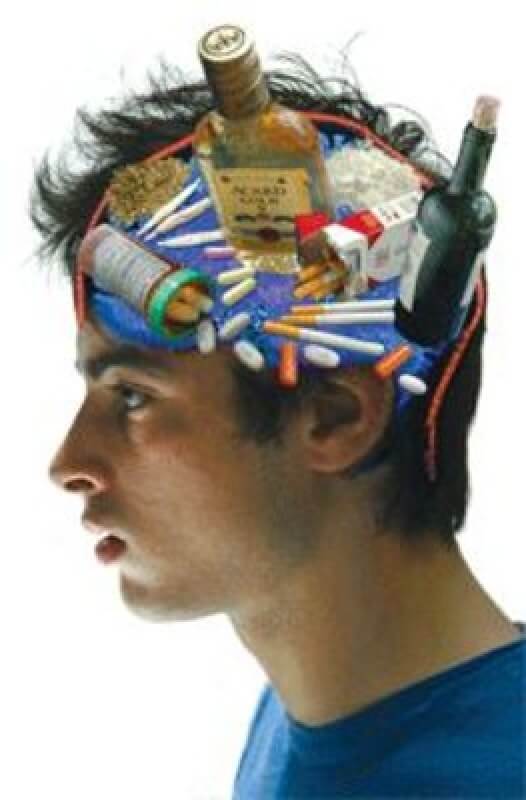What is Addiction?
What is Addiction?
Addiction is a chronic, relapsing brain disease defined by a physical and psychological dependence on drugs, alcohol or a behavior. When an addictive disorder has formed, a person will pursue their toxic habits despite putting themselves or others in harm’s way. An addiction heavily impacts the way a person thinks, feels and acts. Many individuals with addictive disorders are aware of their problem, but have difficulty stopping on their own.
Recognizing and Understanding Addiction
Recognizing and Understanding Addiction
Identifying a substance abuse problem can be a complicated process. While some signs of addictive behaviors are obvious, others are more difficult to recognize. Many people who realize they have a problem will try to hide it from family and friends, making it harder to tell whether someone is struggling.
Television, media and film often depict people with substance abuse issues as criminals, or individuals with moral shortcomings. The truth is, there’s no single face of addiction. Anyone can develop patterns of abuse or risky behaviors, no matter their age, culture or financial status.
What is the difference between Habit and Addiction?
What is the difference between Habit and Addiction?
An addiction is defined as a habit that has become out of control, to the extent that the individual is dependent on it for coping with everyday life. Addictions typically will have negative effects on the person’s emotional well-being and physical health, while also affecting those around them.
The psychological link, in particular, is what separates addition from habit. A habit is something people may do for fun, to relax or as a way of socializing. People can choose to stop a habit, and while it may take some time, can stop successfully. Addiction, however, can be an overwhelming need or compulsion to complete the act regularly, regardless of the time or place, in order to achieve the high. In short, a habit can be controlled, while an addiction cannot.
Spotting the Signs of an Addiction
Spotting the Signs of an Addiction
There are many signs of an addiction. While these may vary depending on the substance or activity, every addiction has the capacity to greatly impact self-esteem and confidence – inducing troublesome feelings such as shame, guilt, a sense of hopelessness and failure. Everyone is different and some people may be better at hiding their addiction, or they may not be aware it has become a problem, but certain behaviour changes can indicate a problem.
Common Behaviours and Signs of a possible Addiction include:
However, with addictions being so varied – from gambling to drug abuse – signs of an addiction can be more or less obvious in people.
What Does Addiction Do to the Brain?
What Does Addiction Do to the Brain?
Addiction impacts the brain on many levels. The chemical compounds in stimulants, nicotine, opioids, alcohol, and sedatives enter the brain and bloodstream upon use. Once a chemical enters the brain, it can cause people to lose control of their impulses or crave a harmful substance.
When someone develops an addiction, the brain craves the reward of the substance. This is due to the intense stimulation of the brain’s reward system. In response, many continue use of the substance, unlocking a host of euphoric feelings and strange behavioral traits. Long-term addiction can have severe outcomes, such as brain damage, and can even result in death.

Addiction impacts the brain on many levels. The chemical compounds in stimulants, nicotine, opioids, alcohol, and sedatives enter the brain and bloodstream upon use. Once a chemical enters the brain, it can cause people to lose control of their impulses or crave a harmful substance.
When someone develops an addiction, the brain craves the reward of the substance. This is due to the intense stimulation of the brain’s reward system. In response, many continue use of the substance, unlocking a host of euphoric feelings and strange behavioral traits. Long-term addiction can have severe outcomes, such as brain damage, and can even result in death.

The Biochemistry of Addiction
The Biochemistry of Addiction
The brain responds to addiction based on a number of factors, such as the type and number of drugs used, the frequency, and the stage of addiction. For example, if someone uses cocaine, they will notice a feeling of euphoria. This occurs because cocaine is psychoactive and impacts the area of the brain that controls pleasure and motivation. Therefore, there is a short, but powerful burst of dopamine—the chemical that causes many to feel euphoric. This feeling can be so intense that a strong desire to continue using may form.
The more someone abuses a drug, the more they may continue using it, unless they get help overcoming a life-threatening addiction. Once the chemical has affected the brain, individuals can feel physical symptoms, as well as the impact of the chemical throughout their nervous system. These can include a rapid heartbeat, paranoia, nausea, hallucinations, and other disturbing sensations the individual has little control over. He or she may become consumed with abusing the substance to maintain their habit, no matter the cost. As a result of this powerful grip of substance abuse, individuals can begin acting in unrecognizable ways, concerning friends and family.
Rewarding The Brain : How Addictions Develop
Rewarding The Brain : How Addictions Develop
The brain regulates temperature, emotions, decision-making, breathing and coordination. This major organ in the body also impacts physical sensations in the body, emotions, cravings, compulsions and habits. Under the influence of a powerful, but harmful chemical, individuals abusing substances like benzodiazepines or heroin can alter the function of their brain.
Drugs interact with the limbic system in the brain to release strong feel-good emotions, affecting the individual’s body and mind. Our brains reward us when we do something that brings us pleasure. To illustrate, individuals continue taking drugs to support the intense feel good emotions the brain releases, thus creating a cycle of drug use and intense highs. Eventually, they take the drug just to feel normal.
The Brain, Addiction & Withdrawal
The Brain, Addiction & Withdrawal
As a consequence of drug addiction, the brain rewards the brain. It encourages drug addiction, keeping the individual in a cycle of highs and lows, on an emotional roller-coaster, feeling desperation and depression without it. Once someone suddenly stops, there are harsh mental, physical, and emotional results. Individuals may experience distressing symptoms they cannot ignore for some substances, withdrawal symptoms are generally stronger for some substances than others.
At the point of withdrawal, someone who stop using heroin feels intense cravings, depression, anxiety and sweating. Much of this is due to the rewiring of the brain after extended heroin use. In this stage, the individual may not have a full-blown addiction, but may have developed a tolerance or dependency. Over time, the high volume of chemicals floods the brain, causing it to adapt to the mental effects of the substance. The brain then reduces its production of neurotransmitters, or chemical messengers in the brain. Withdrawal symptoms often need professional treatment, which can significantly help reduce the chance of relapse and the risks of stroke or heart attacks.
Getting Therapy For Addiction
Getting Therapy For Addiction
Anyone suffering from a drug or alcohol addiction knows how powerful and crippling this disease can be. When a user accepts that they can’t manage their addiction on their own, it is time to seek the help of a professional addiction counselor.
Counselors are an important part of addiction therapy and their role and involvement in the treatment process is instrumental to recovery.
Addiction counselors can help support you throughout the treatment process and create an individualized plan for recovery and after-care. There are various types of therapy available while in treatment that will provide an array of benefits and allow you to sustain your sobriety while in recovery.




